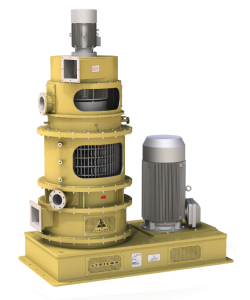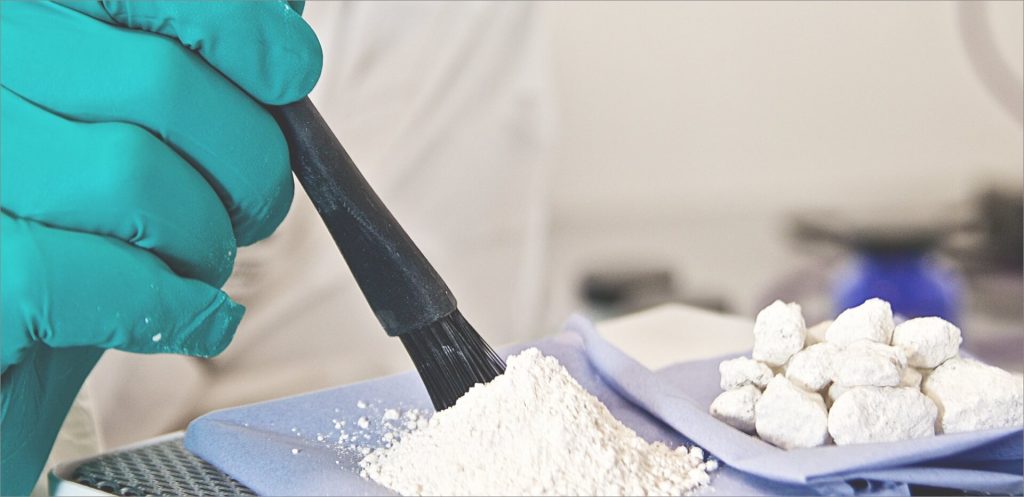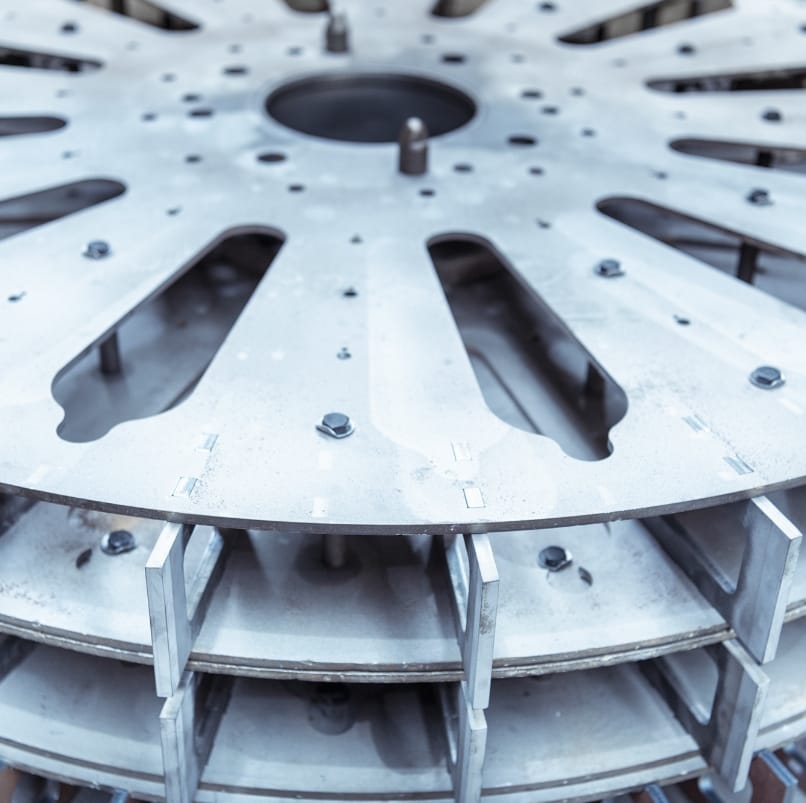Dry milling
Dry milling is a manufacturing process that is typically used for creating powders and granules, as well as for the preparation of certain types of foods. During the dry milling process, raw materials are ground, crushed, or broken down into smaller particles. Our technology enables the simultaneous drying and milling of raw materials of up to 98% moisture.
The dry milling process
The process begins with selecting and preparing the raw materials. Moisture can affect the final product’s quality and consistency, so raw materials need to be free of moisture or other contaminants. Once the materials have been prepared, they can be fed into the process. Dry milling machines use a combination of cutting, grinding, and crushing to reduce the materials to their specified size. Atritor mills are capable of both wet and dry milling, simultaneously drying the material during the milling process if the material has moisture retained.
The dry milling process can be customised to produce a wide range of particle sizes. The particle size requirements are discussed and agreed upon during the specification process so that the machine can be configured accordingly. Configuration to a coarse setting will result in larger particles, while a fine setting will produce smaller particles.
The process of dry milling is relatively efficient. Dry milling machines are designed to use minimal energy, and the process is relatively quick. This makes it a cost-effective solution for many manufacturing applications.
The benefits of the dry milling process include
- The ability to produce a wide range of particle sizes
- The efficiency of the process
- The ability to control the final product’s quality and consistency.
Additionally, it is a relatively safe process, as it does not involve the use of any flammable liquids or other hazardous materials.
Dry milling applications and methods
 Dry milling is commonly used in the manufacturing, food processing and chemical industries to grind and crush materials into a powder form without using any liquid. The Atritor Cell Mill and the Pulveriser are dry milling machines that are particularly useful when large quantities of raw material need to be processed. Both the Cell Mill and Pulveriser can take materials of up to 98% moisture and dry and mill them simultaneously.
Dry milling is commonly used in the manufacturing, food processing and chemical industries to grind and crush materials into a powder form without using any liquid. The Atritor Cell Mill and the Pulveriser are dry milling machines that are particularly useful when large quantities of raw material need to be processed. Both the Cell Mill and Pulveriser can take materials of up to 98% moisture and dry and mill them simultaneously.
The Cell Mill is a high-speed impact machine used to reduce the size of particles in a material. This machine has a rotor that spins at high speeds, creating a centrifugal force that causes the particles to collide, reducing particle size. The Cell Mill is commonly used in producing fine powders, such as those used in the pharmaceutical and food industries.
 The Pulveriser machine has a grinding chamber containing a rotor and a set of hammers. The hammers rotate at high speeds and crush the materials against a set of grinding plates, resulting in a fine powder. The Pulveriser machine is commonly used to produce powders for the chemical and mining industries.
The Pulveriser machine has a grinding chamber containing a rotor and a set of hammers. The hammers rotate at high speeds and crush the materials against a set of grinding plates, resulting in a fine powder. The Pulveriser machine is commonly used to produce powders for the chemical and mining industries.
The Cell Mill and Pulveriser machines are highly efficient and cost-effective for processing materials. Additionally, these machines are versatile and can be used for various materials, including metals, ceramics, and plastics.
Wet or dry milling?
Dry milling tends to be the preferred processing method because the key difference between wet and dry milling is that dry milling is more efficient and cost-effective, especially for larger quantities. Here at Atritor, we understand that a dry material is not always possible, so our mills are capable of both wet and dry milling.
Atritor mills can simultaneously dry and mill raw materials of up to 98% moisture. However, as drying increases the amount of energy required in the milling process, we work closely with clients to establish whether moisture content can be mechanically reduced before the raw material is milled to achieve greater overall cost-effectiveness for the milling process.
Dry milling is a more versatile process as it can be used for many materials, including metals, ceramics, and plastics. Furthermore, it is also preferred for materials sensitive to moisture and heat, as the absence of water and heat during the process ensures that the materials retain their properties.

How can we help you?
Here at Atritor, we thrive on process challenges. Our 90+ year history has given us the knowledge to design wet and dry milling processes that take raw materials and manufacturing bi-products and turn them into value-added products. We have the technical expertise to process materials using single or multi-stage operations to ensure products meet your exact specifications. Read more about the processes we specialise in using the links below, or get in touch with our team and see how we can help.

Solving materials processing challenges
Download to learn more


